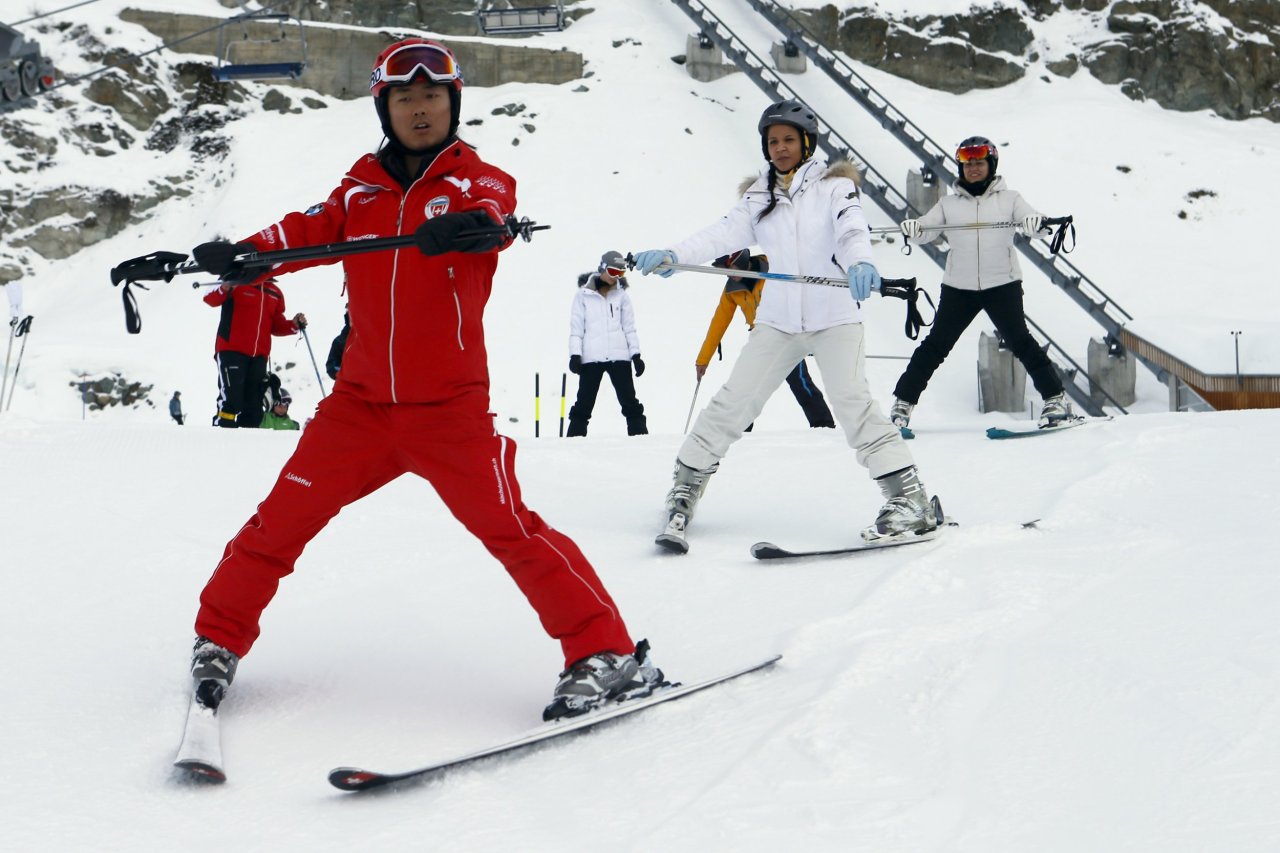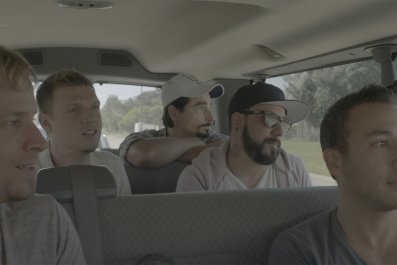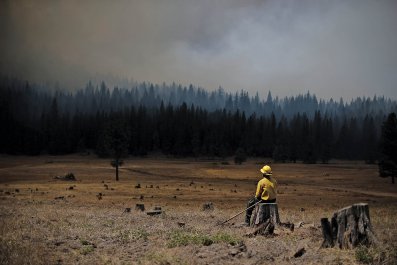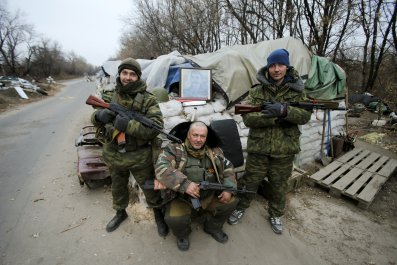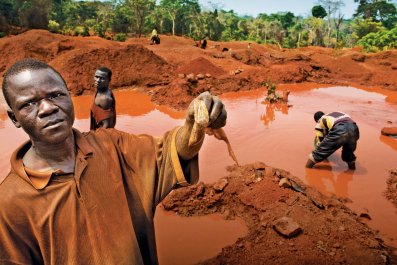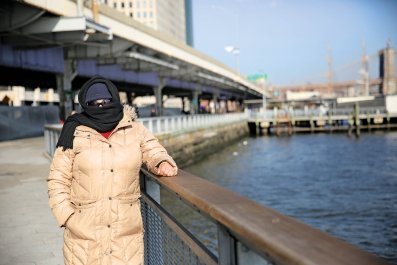Xu "Johnson" Zhongxing grew up in Chongli, a county in Hebei province about 150km north of Beijing. It is a popular ski destination, boasting four resorts. But he didn't take to the slopes until he reached university, a bit abashed to find himself identified as the guy from the ski town who had never skied. During the winter holidays, he rented equipment, bought himself a lift pass and gave it a go. "And right away I thought, OK, I belong to this sport."
Since then, Xu, now 27, has been making up for lost time. He quickly switched from skis to a snowboard, and after graduation began work at one of his hometown resorts, acting as an interpreter and teaching people how to carve, ride, switch, and simply manage the rope tows. Skiing is not a common pastime in China, with less than 1% of the population participating, according to a 2014 international ski report, and most of those going for a few hours once a year, rarely leaving the beginner slopes. Most ski areas suffer from poor infrastructure, unchallenging runs and bitter-cold temperatures.
So, in 2013, Xu jumped when a friend he had met through snow sports called to tell him about an opportunity to move to Switzerland for a ski season. The administrators of ski destinations around the globe have been aware for some time that China represents a potentially lucrative trove of holidaymakers, and Switzerland has been proactive about attracting them. It was the first country to set up a tourism office in China, and now hopes Mandarin-speaking ski instructors will help attract a growing portion of China's approximately 110 million outbound tourists a year – the world's biggest market.
Xu applied for the job, passed his interview – which tested ski and English skills – and left his home country for the first time in December 2013, alongside six peers. It went so well that, this season, he and six others are back, teaching students of all nationalities; in Xu's case, he's landing new Chinese students about once a week on average.
It is never a bad time for a country to attract more tourists, but in the past few years, the Chinese have grown in importance for Switzerland. Total visitor numbers fell in 2009, 2011 and 2012, according to the Swiss Federal Statistical Office, dragged down by fewer Europeans holidaying by the country's scenic lakes and Alpine peaks. Global recession and the Eurozone crisis all dissuaded travel, and especially to one of the continent's most expensive tourist destinations. Moreover, just as numbers were rising again, the Swiss National Bank delivered a blow last month, announcing it would no longer limit the degree to which the Swiss franc could rise against the euro. The next morning, the currency had soared, and today the Swiss franc and euro are nearly at par.
"It's been quiet, really quiet" since the central bank announcement, said one hotel owner in Grindelwald, the 4,000-inhabitant town south-east of Interlaken where Xu works. She reported people were cancelling reservations or trying to renegotiate prices, casting a shadow over what had been finally looking like a real white winter – the kind that under different circumstances would find British, German and Italian powder fiends checking the Swiss webcams and booking last-minute flights to Zurich.
But the Chinese are different. For one, they plan their holidays further in advance, meaning short-term exchange rate swings are less likely to lead to cancellations. And, crucially, says Christoph Eastermann, general manager of a Grindelwald ski and mountain-sports school – Xu's employer – for the Chinese, Switzerland is often just one piece of a larger European adventure, meaning one longer-term currency trend – the euro falling as the European Central Bank starts its quantitative easing programme in earnest – makes the continent more attractive. "Their whole vacation package just got cheaper, even if the Swiss part is a little more expensive."
Michael and Michelle Hu, Xu's young students, fit that picture: after Grindelwald, they will spend several days with their parents shopping in Paris before returning to Beijing. The couple owns and runs a company there making machines for factories. Michael's mother, 38-year-old Li Shuang, deals with their western suppliers, meaning travel to Europe two or three times a year for business, on top of an annual family vacation. She'd planned this holiday after trying skiing in Beijing and enjoying it and she thinks they'll do it again, bringing along friends next year. The family is relatively unique among Chinese tourists in that they came with skiing in mind and planned several days for it. More common is one day on the slopes, with as much time devoted to picture-taking as practice. "At first, my bosses were shocked by how much time went to photos at the start of each lesson," says Xu.
But he has big dreams for his countrymen as skiers – and for himself in this industry. China will find out in July whether Beijing has won its bid for the 2022 Winter Olympics, beating Almaty, Kazakhstan. If it has, the event – much of which will be held in Chongli – will inevitably boost domestic interest in snow sports; it might also land Xu the job of his dreams, something that combines the ski, language, customer service and cultural skills he's picked up in Switzerland – but closer to home.
Switzerland's dreams may be more prosaic, but they also translate love for a sport into money and jobs. Three quarters of jobs in the region are in the service industries, and the proportion is probably even higher in Grindelwald itself. Eastermann believes hiring people like Xu is only a first step. "We need to make things easier for Chinese guests," he says, including working to create all-in-one packages more like those offered by US and Canadian resorts. The country also needs to ensure that the Swiss brand is communicated as much when it comes to skiing as with chocolate or watches. Here, the Chinese might be easy targets. They love a brand, and the level of skiing – which, Eastermann admits, you can get elsewhere – pales in importance to the wider setting, which you can't.
It worked for the Hu family. Ms Hu has relatives in San Francisco and Boston whom she visits regularly. Would she consider Vail for her next ski holiday? Whistler? She scoffs and gestures to the majestic mountains across the valley. "No. For skiing, Switzerland is the only place."



